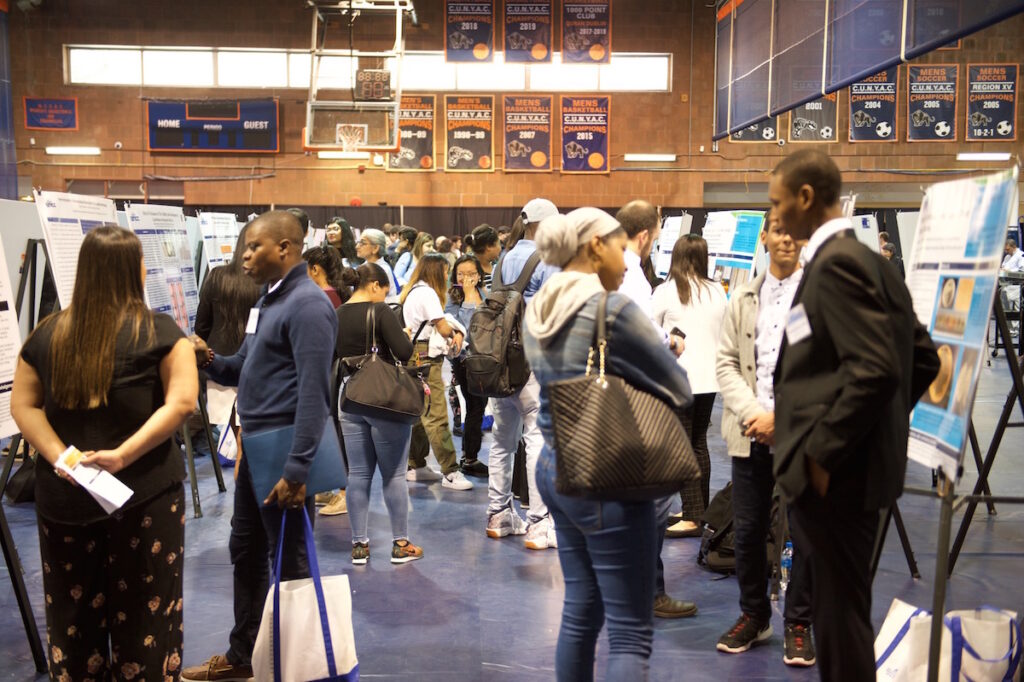As deputy department chairperson for the Business Management at the Borough of Manhattan Community College, and coordinator of the Small Business Entrepreneurship degree program, I am responsible for academic program review process.
In our entrepreneurship degree program, the bottom-up academic program review process would focus on evaluating the effectiveness of the program in preparing students to become successful entrepreneurs. The following example illustrates how this process would be applied:
- Student learning outcomes (SLOs) assessment
- Collect data on student performance in courses such as business planning, marketing, finance, and innovation.
- Example: Assessing the success rate of student-led business projects and the quality of business plans developed by students.
- Course-level evaluation
- Gather student feedback on course effectiveness through end-of-course surveys, focus groups, or interviews.
- Example: Analyzing survey results to determine if students find the courses relevant, engaging, and applicable to real-world entrepreneurship challenges.
- Program-level evaluation
- Aggregate course-level data to assess overall program effectiveness, including graduation rates, retention rates, and the success of alumni in starting or growing businesses.
- Example: Tracking the percentage of entrepreneurship graduates who successfully launch a business within three years of graduation.
- Faculty involvement and input
- Engage faculty in the review process, discussing potential improvements based on course and program-level data.
- Example: Hosting faculty workshops to identify strategies for better integrating experiential learning and real-world case studies into the curriculum.
- Advisory committees and external stakeholders
- Consult with successful entrepreneurs, investors, and other stakeholders to ensure the program remains relevant and aligned with current industry needs.
- Example: Inviting experienced entrepreneurs to review and provide feedback on the program’s curriculum and course offerings.
- Review and synthesis of data
- Analyze all collected data to identify patterns, trends, and areas for improvement in the entrepreneurship degree program.
- Example: Creating a comprehensive report that highlights the program’s strengths and weaknesses, and offers recommendations for improvements.
- Action plan development
- Develop a detailed action plan to address identified issues, with specific goals, timelines, and responsible parties.
- Example: Creating a plan to update course materials, offer additional mentorship opportunities, or establish partnerships with local businesses for internships.
- Implementation and monitoring
- Implement the action plan, monitor progress, and adjust strategies as needed to ensure continuous improvement.
- Example: Regularly reviewing data on student outcomes, course evaluations, and alumni success to track progress and make necessary adjustments.
- Re-assessment and ongoing improvement
- Continuously reassess the program’s effectiveness and make adjustments as needed to ensure ongoing improvement.
- Example: Conducting a follow-up program review in a few years to assess the impact of implemented changes and identify any new areas for improvement.
By following this bottom-up process, the entrepreneurship degree program can ensure that it effectively prepares students to become successful entrepreneurs and that the program remains responsive to the ever-changing needs of the entrepreneurial landscape.
By adopting a bottom-up approach, the academic program review process ensures that student experiences and learning outcomes remain central to the evaluation and improvement of educational programs.

** This post is based on the CETLS workshop on program assessment in 2023
CETLS Workshop – Academic Program Review: A Bottom-Up Approach
Tuesday, April 25, 2023 | 12:00 pm – 1:30 pm | Zoom
Add to Calendar: GOOGLE OUTLOOK APPLE
Facilitator
Gloria McNamara (Health Education)
Panelists
Gloria McNamara (Health Education)
Jennifer Longley (Teacher Education)
Elizabeth Whitney (Speech, Communications, and Theater Arts)
Khushmand Rajendran (Social Sciences, Human Services, and Criminal Justice)
Roderick (Shane) Snipes (Business Management)
Description
This workshop will present a general overview of the Academic Program Review (APR) process and outline the components of a typical APR report. However, the focus for this workshop is on student performance measures currently being used by faculty in the classrooms (bottom-up). As there are many diverse ways to assess performance and this is an integral part of the APR process and report, we would like to share this information with colleagues. Attendees looking for ways to contribute to their Department’s APR process will come away informed, as the panelists have valuable experience in this area.
Organized by the BMCC Assessment Sub-committee: Ruth Guirguis, Roderick (Shane) Snipes, Elizabeth Whitney, Carlo Diego, Quentin Angus, and Gloria McNamara.





